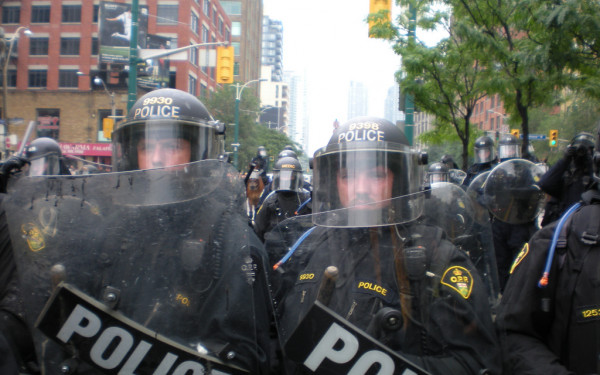Editorial
Criminalizing Academia
The traditional Canadian deference to the legal system, if that stereotype ever truly existed in practice, needs to come to an end.
It’s clear that our lack of clear guidelines in certain areas of criminal law is now being abused to erode certain basic human rights.
Unsettling precedents are being set by isolated courts of law across the country. In Ottawa and suburban Toronto, two decisions were made last week that criminalize debate and revoke the rights of citizens.
This is a dangerous situation.
Alex Hundert, an organizer arrested during the G20, was rearrested by the Ontario Provincial Police on Sept. 18 after speaking at an event at Ryerson University. At the time, the police argued that Hundert had violated his “no demonstration” bail condition by speaking at a university.
On Oct. 8, the justice of the peace at the Scarborough Courthouse ruled that Hundert had violated his bail by engaging in the same kind of behaviour that he had displayed during the run-up to the G20.
In other words, the fact that Hundert spoke at a university as an invited guest of a professor—as part of an advertised panel, no less—was not only a demonstration, but showed a level of conspiracy dangerous enough to deprive the man of his liberties.
Hundert has been in jail since he was rearrested on Sept. 18.
As of last week, speaking at a university is a crime in Scarborough, Ontario. I hope no one reproduces this editorial on the campus of the University of Toronto in Scarborough; they may find themselves sharing a cell with Hundert.
If the criminalization of academia wasn’t a large enough corruption of Canadian law for the week, the Supreme Court of Canada decided to join in on the same day.
As of Friday, any citizen arrested by the police no longer has the right to a lawyer while they are being questioned.
The latest development in the long, steady erosion of criminal rights in this country, the court ruled that the accused could consult with counsel before being put into an interrogation room, but counsel could not follow their clients in.
By empathizing with the interrogator in a state that recently arrested 1,100 of its citizens and locked them away for up to three days in holding cells, this sends the wrong message.
The rights of the accused and the accusers are already skewed towards the latter. This ruling makes the situation worse.
This last week has clearly shown the direction Canada’s legal system is taking, as well as the dangers of staying quiet.
In the past, our deference—with notable exceptions—had been rewarded by our criminal justice system, as our legal system grew into a seemingly more tolerant, open-minded entity.
It seems those innocent days are over. Canada’s past, of a vague and unwritten criminal law, where the majority of citizens operated in a comfortable grey area, appears to have passed. Our deference is now being punished.
—Justin Giovannetti,
Editor-in-Chief
This article originally appeared in Volume 31, Issue 09, published October 12, 2010.




_(1)_600_375_s_c1.png)

